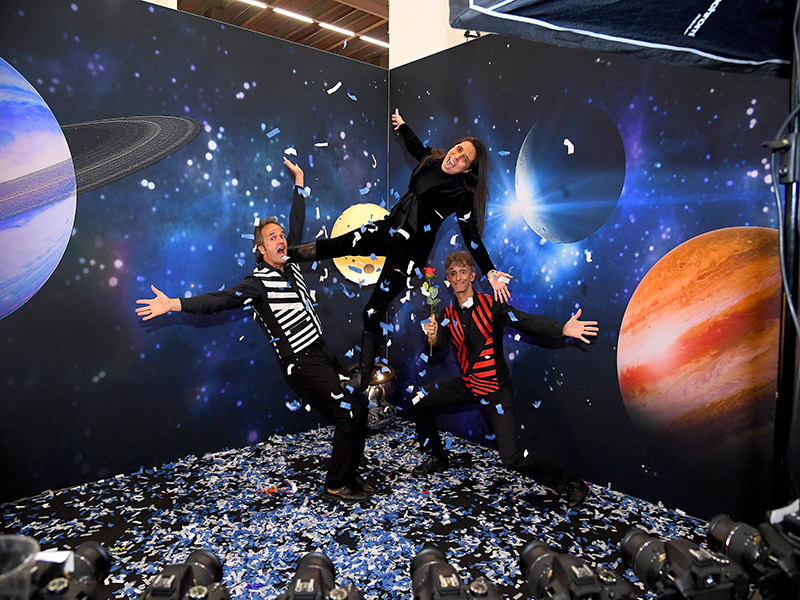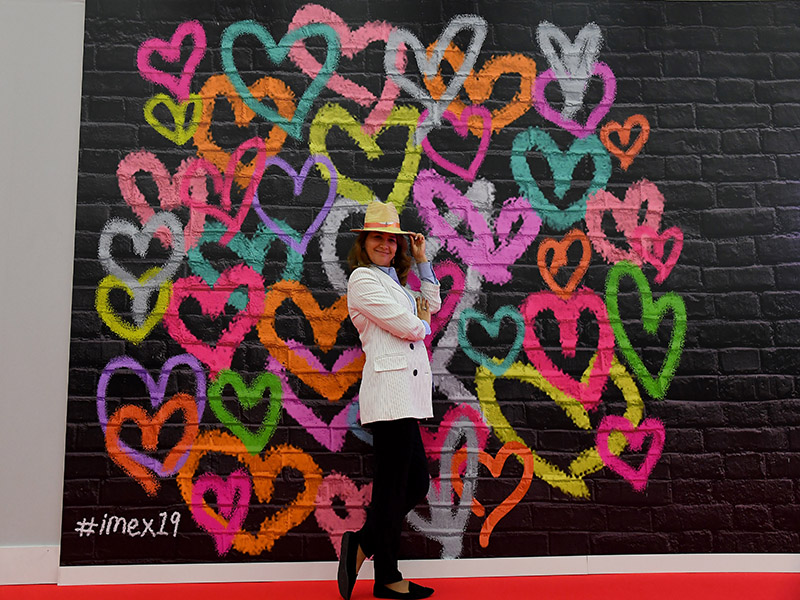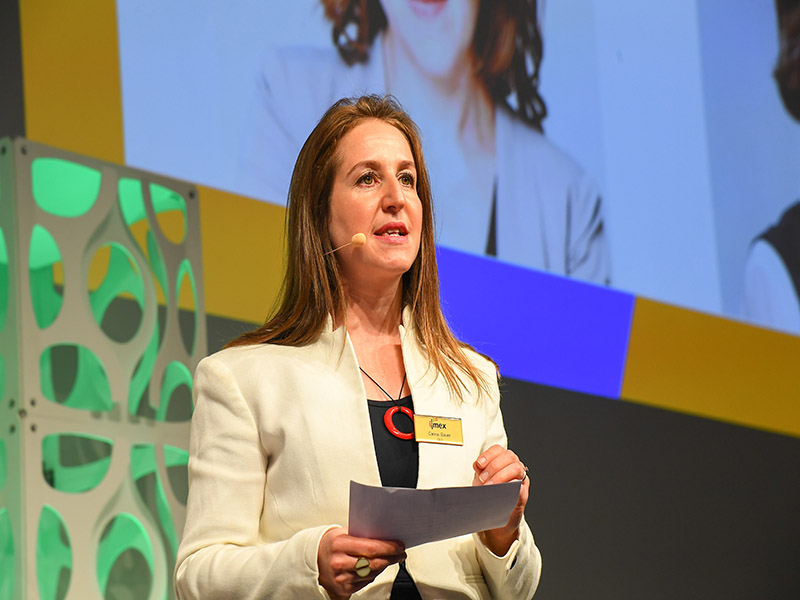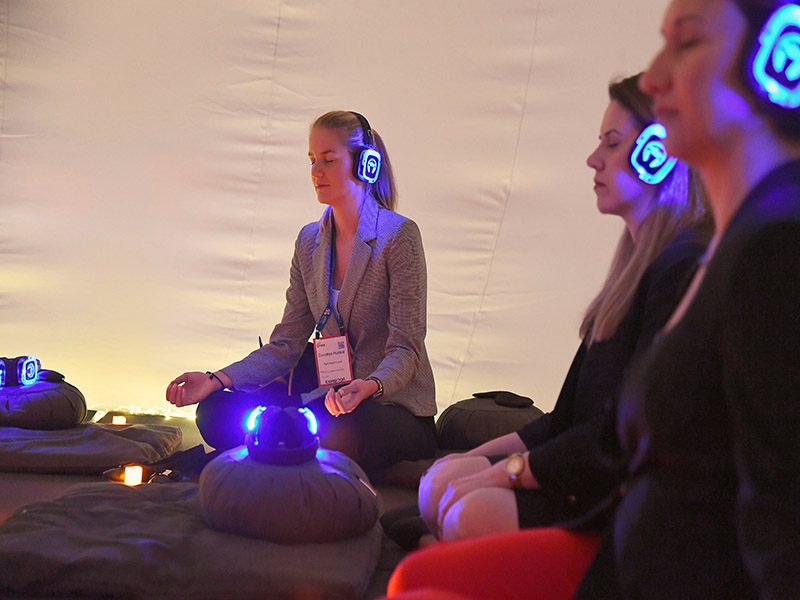“It’s been a turbulent year for the world in general and for so many of our exhibitors. In the past few years we’ve observed trends that, even though they eventually led to innovation, were essentially disruptive and extremely challenging, so coming into 2020 we’re focusing ‘on the bright side of life” says Carina Bauer, CEO of the IMEX Group.
This shift towards the positive has been inspired by the creativity and resilience of individuals and companies in our industry and, in the wider world. So, IMEX has chosen to highlight trends which they believe are going to change the world, our industry and the way we work for the better in 2020.
The circular economy
As an alternative to a traditional linear economy (make, use, dispose), in a circular economy we keep resources in use for as long as possible, extract the maximum value from them whilst in use, then recover and regenerate products and materials at the end of each service life. ʺSustainability consciousnessʺ has contributed enormously to changing attitudes and behaviours for the better – stopping practices like single use plastics that harm the planet and its inhabitants; to reducing waste and encouraging recycling. The next positive step is to create business models based on the circular economy in which the principles of zero waste, maximising product life and the reuse and recycling of materials are intrinsic to their design.
Taking up the challenge of the United Nations sustainable development goals
“Producing sustainable events is the only way to ensure that your business will continue to exist. It’s not an addition – it’s the only option”, said Miguel Naranjo, program officer for the UN Framework Convention Goals. The annual IMEXEIC Innovation in Sustainability Award has been generating great interest and is highly effective in encouraging the industry to create and celebrate new initiatives.
More focus on mental health
According to the Institute of Health Metrics Evaluation’s Global Burden of Disease, about 13 % of the global population – some 971 million people – suffer from some kind of mental disorder. According to Arianna Huffington of Thrive Global, 300 million people suffer from depression, making it ʺthe world’s leading cause of disability.ʺ Millions more now suffer from anxiety, stress or dementia. The big change is first that the historic stigma attached to admitting to mental illness is being removed with so many campaigns that say ʺIt’s OK not to be OKʺ. And second, there is more action, not only to provide greater help but also to reduce root causes. There are now many apps to help with everything from wellness to sleep quality and many employers have trained mental health first aiders who can identify and help staff. More employers are also taking steps to minimise the causes of stress and anxiety at work by, for instance, providing flexible working hours and places where staff can find peace and quiet away from their desks.
AI can make travelling a more pleasant and less stressful experience
It’s no surprise that according to research from the University of Montreal commutes of 20 minutes or more can lead to chronic stress and burnout. So it’s great to find that realtime emotion detection and artificial intelligence (AI) are being used to combat stress and bring a sense of wellbeing and calm to travel environments.First, across the Stockholm metro system, for two weeks this year, advertising space provider Clear Channel Sweden created
the Emotional Art Gallery to help calm travellers. It synthesised realtime, publicly available data from Google searches, social media, news articles and traffic information to determine the mood of the city. The data was used to select and display artwork meant to combat commuter stress and anxiety across 250 of Clear Channel’s connected screens. Six artists contributed to the exhibition, with bespoke pieces created to induce feelings of energy, love, peacefulness, calm, happiness, comfort and safety. Emotion detection robots can be deployed for the benefit of travellers in airports as well. Istanbul New Airport is to use them to improve travellers’ experiences. Nely, a social robot from Turkeybased Human Age Technology, can provide information to travellers about traffic, gates and weather forecasts all while reading users’ emotions and reacting accordingly. The hope is that having the robot respond to emotions, interactions will be more useful and enjoyable for people and will decrease travel stress.
The idea is also being applied to car drivers. At the CES exhibition in January 2019 Automotive company Kia showed its Realtime Emotion Adaptive Driving (R.E.A.D.) system designed to reduce stress levels. The system monitors the driver’s emotions using bio-signal recognition technology. The AIbased technology analyses facial expressions, heart rate and electro-dermal activity to determine emotional state and then adjusts the interior of the car – such as lighting or music – to improve the driver’s state of mind.
“We’re looking forward to these trends making 2020 a year of positive changes,” concludes Carina Bauer, CEO of the IMEX Group.









































 Srpski
Srpski English
English